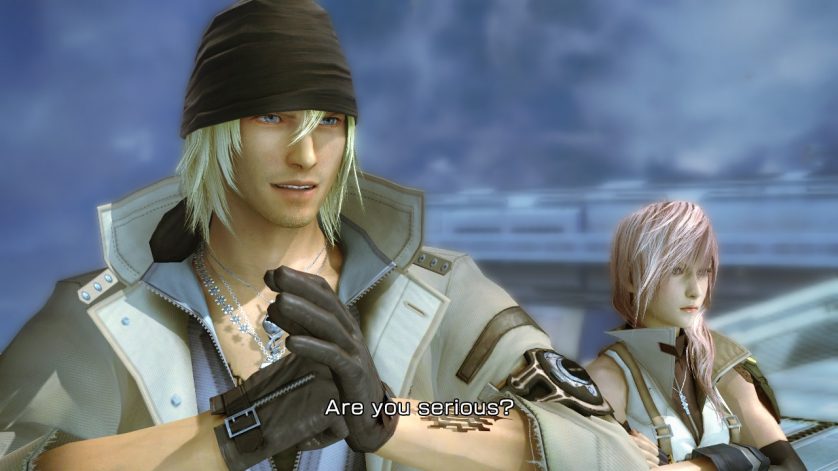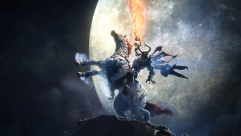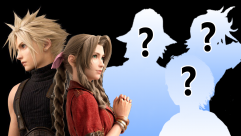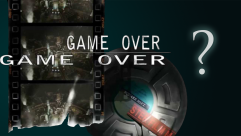Editorial: Black Chocobos – The Oddballs of Final Fantasy
by Micah Rodney December 17, 2015 0 comments
Six years ago, Final Fantasy XIII was released to a crowd of ravenous Final Fantasy fans. The mostly linear fantasy that was riddled with development complications was received well by Japanese gamers, though most western gamers simply didn’t get it. Director Motomu Toriyama said that the development team’s focus was on telling a compelling story which couldn’t have been done if the players were given more freedom. Furthermore he said that reviewers were using Western game design sensibilities to judge the game upon. Does he have a point, or was it a simply a quick explanation for a less than stellar Final Fantasy title?

After all the fans had never seen a Final Fantasy game do something so drastic and change the formula so much… since Final Fantasy XII. Final Fantasy XII was a fully open world, heavily story focused with a completely redesigned battle system. The fans had never seen a Final Fantasy game do something so drastic and change the formula so much… since Final Fantasy XI. Final Fantasy XI was an MMO. Final Fantasy X-2 was the first direct playable sequel to a Final Fantasy that utilized most of the same cast, and the first to feature an all-female battle cast. Final Fantasy X was the first to feature voice acting and first numerical entry to step away from the ATB system. The point I am laboriously trying to get to is quite simple. Every Final Fantasy has been a black sheep.

What sets games like Final Fantasy XIII, Final Fantasy X-2, Final Fantasy VIII and even the franchise starting point / whipping boy Final Fantasy II in a league of their own? Why do the other games gets such stellar reviews while fans of these games have to hide away in holes and sheepishly admit to having a fondness to them amid the franchise hardcore? What do these games do so drastically different that – in a series full of oddball titles, massive changes and vastly unique experiences – they are the ones called the “black sheep?”

Final Fantasy II: A Rocky Start
Let’s start by taking a look at Final Fantasy II, the follow-up to the original Final Fantasy. The original Final Fantasy was kind of an oddball itself, being heavily based upon Dungeons & Dragons and not really having too unique a personality. It did have soul to it, but most of the staples we know and love about Final Fantasy weren’t introduced until Final Fantasy II. II brought us Chocobos, Dragoons, key spells like Ultima and Toad, and even was the beginning to the deep and vastly character driven stories that would become the jewel in Final Fantasy’s development crown.

However, it was bogged down by a highly complex and yet sadly unrefined leveling system, boring gameplay and some other questionable choices. This game is not looked back on as harshly as the other entries for a few reasons. Perhaps most important being that very few gamers have played it, or have played the Dawn of Souls remastered port which fixes some (though not all) of the problems. Also there is the excuse that it was “just a Famicom game”. I’ve always found this argument rather confusing considering the Famicom gave us The Legend of Zelda and Super Mario Bros 3, two of the most enjoyable games ever made, and both that still hold up today. But for what it’s worth, technical limitations are an understandable excuse for less than stellar quality. Final Fantasy II did truly start the Final Fantasy franchise, as well as the SaGa series, which took its level system and refined it. II was a black sheep for the right reasons- experimentation.

Final Fantasy VIII: A Love / Eight Relationship
What about Final Fantasy VIII however? A follow-up to the insanely successful Final Fantasy VII, fans were expecting Square to strike gold once again. After all VII had the easy-to-learn, rewarding-to-master Materia system, a deep compelling story with like-able characters who suffered true trauma and heart-break, and one of the most tear-jerking deaths in all of video games. A game that came after this would naturally have to be better! But it wasn’t. Final Fantasy VIII gave us an easy-to-break, unsatisfying-to-master Junction system, a rather shallow mystery story with stock characters who never really had to face the level of intense antagonism that our heroes in VII did, and one of the most tear-jerking grinds in all of video games. Did Square really mess up this badly? Or were we being too hard on the game?

It’s fair to say that after VII any game could be a disappointment. It’s that good of a game. But it seemed like VIII was going in so drastically different a direction that it’s hard not to be taken aback. Even fans of the game, like yours truly, admit that the gameplay was broken at best. But VIII did start moving towards the more realistic and even futuristic settings. VIII’s characters did start out as stock and bland but for those who followed the story through the characters did flesh out, and the story of Squall and Rinoa grew into an honest romance. It created Triple Triad, one of the few universally enjoyed things from the game. It even introduced Gunblades which would make their way back, albeit drastically changed, in Final Fantasy XIII. And it has one of the strongest soundtracks in the franchise. Final Fantasy VIII is a “love it / hate it” kind of game. Fans are able to see past the questionable gameplay in favor of the story and experience that we eventually got out of it. Haters say that the gameplay was more than questionable and the acting of our characters was stilted and unimpressive.

Final Fantasy X-2: The Unnecessary Sequel
VIII expected us to tolerate poor gameplay in favor of a deep story and fun overall feel. X-2 expected pretty much the opposite of that. As a sequel to the incredibly well-received Final Fantasy X (what this reviewer deems the end of the Final Fantasy Golden Era) our expectations were hard to pin down. The story seemed finished to us, albeit it did have a rather sad ending. And the primary threat of the world was permanently banished thanks to the efforts of Yuna and her friends. What was left to do? The game promised us something unlike we’d ever seen before, and it certainly gave us that. But did we really want it?

Starting up the game and hearing the strains of “real EMOTION” sung by somebody who at least looked like the formerly dignified and demure summoner Yuna was, to say the least, a bit off-putting. From there began a Charlie’s Angel feel with a vastly different soundtrack from Uematsu’s usual score, voice acting that didn’t quite hit the mark, and pandering, pandering, pandering. The game felt cheap. It felt exploitative. It felt like an excuse to put our respectable female protagonists from X and dress them up in fan-servicey, jail-baity outfits (a feeling we would get once more when Lightning Returns: Final Fantasy XIII came out). And the story, well the story was kind of silly, and not in a good way.

But what did X-2 do right that brings even detractors like myself back to it? The gameplay. This was the most fun we’d had with a Final Fantasy in a long time. Sure they botched Blitzball but everything else was stellar. From the way the stories in the individual areas progressed, to the mini-game laden areas, to the chapter-spanning side objectives, and not to mention the amazing replay-ability with the New Game+ feature. This game was incredibly fun. And best of all it brought back an incredibly detailed Job System and an updated ATB that led to battles that felt like they were real time. Is gameplay enough to save a generally unsatisfying experience? Well that’s up to you.

Final Fantasy XIII: The Pretty Line
But bringing this article full circle, what about Final Fantasy XIII, perhaps the most universally maligned game in the franchise. What do the linear corridors give us? Some have praised the battle system and it is fairly revolutionary, but it didn’t really hit its stride until Final Fantasy XIII-2 where they ironed out a few issues, such as the insanely high amounts of CP needed to level. Some have praised the characters, but for every Sazh and Fang we have a Hope and Vanille. Many praise the story and I hold it up as one of the best stories ever told in the franchise even with a slightly unsatisfying Hollywood ending. But even among the fans it’s hard to pinpoint what the people who enjoy XIII enjoy about it. XIII is a wildly different game from the core of Final Fantasy, and it shows.

What XIII does deliver is a multi-console release that offers spectacular graphics, a very solid soundtrack though not the best in the franchise, and a great story. You have to sit through long stretches of linearity and again not so great voice acting to experience it though.

Conclusion
While these four games might be more divisive and polarizing than the other entries, it’s difficult to pin down why that is. Sure you might point to a particular fault in a game and go “that’s it”. However, that doesn’t explain why – in a series dominated by the powerhouses of the genre of RPG – these games were ever made. Well, it all comes down to the Final Fantasy II argument again: experimentation. Every Final Fantasy has experimented in some way. Some experiments like Final Fantasy VII’s shift to the CD-based PlayStation, the more futuristic setting and the Materia system paid off for the franchise. Others didn’t as much.

Recently we got word that the Final Fantasy VII: Remake would be a multi-part installment and several people including yours truly were initially outraged or heartbroken. How could they do this? We haven’t seen a Final Fantasy game do something so drastic or change the formula so much since… wait minute I think I’m sensing a pattern here. The fact of the matter is we know with every game that they put out, they put their all into it. (Except perhaps the mobile games.) Squaresoft did it, and Square-Enix does it now. I would rather the franchise continue to experiment and be pleasantly surprised than see the series stagnate. Final Fantasy XIII-2, the direct sequel to XIII is a truly stellar experience that rebuilt the games from the ashes of the less than great XIII. A Realm Reborn: Final Fantasy XIV completely over-hauled the sloppy lackluster 1.0 and rebuilt it into a pinnacle of modern MMO.

Final Fantasy continues to learn from every experience. If they make a mistake, if something doesn’t go as well, they continue to try and experiment. Square-Enix will never be satisfied with anything less than absolutely dazzling their fans. And the only way they’ll hit those home runs is to strike out every once in a while.






No comments yet
Log in or Register
Great editorial dude!
I don’t see anything wrong in having Black Chocobos. I mean, this is Final Fantasy we’re talking about. Plus, as my mother would say, “A change is as good as a holiday” though that doesn’t work everytime, but anyway. Besides, we can’t just continue having just yellow Chocobos all the time.
Time to bring out other colours of the large birds. Maybe next time they’ll have red, blue, green and pink Chobocos.
agreed, i also like to see them try something new
i don’t think the series would be where it is today if they just stuck with the same thing over and over, experimentation is the key to keeping the series fresh
Thanks for writing this, it was a good read and an even better reminder that change is ok.